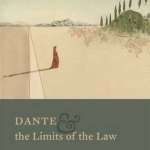Dante and the Limits of the Law
BookThis item doesn’t have any media yet
2016 | Essays
In Dante and the Limits of the Law, Justin Steinberg offers the first comprehensive study of the legal structure essential to Dante's Divine Comedy. Steinberg reveals how Dante imagines an afterlife dominated by sophisticated laws, hierarchical jurisdictions, and rationalized punishments and rewards. He makes the compelling case that Dante deliberately exploits this highly structured legal system to explore the phenomenon of exceptions to it, crucially introducing Dante to current debates about literature's relation to law, exceptionality, and sovereignty. Examining how Dante probes the limits of the law in this juridical otherworld, Steinberg argues that exceptions were vital to the medieval legal order and that Dante's otherworld represents an ideal "system of exception." In the real world, Dante saw this system as increasingly threatened by the dual crises of church and empire: the abuses and overreaching of the popes and the absence of an effective Holy Roman Emperor. Steinberg shows that Dante's imagination of the afterlife seeks to address this gap between the universal validity of Roman law and the lack of a sovereign power to enforce it. Exploring the institutional role of disgrace, the entwined phenomena of judicial discretion and artistic freedom, medieval ideas about privilege and immunity, and the place of judgment in the poem, this cogently argued book brings to life Dante's sense of justice.
Related Items:
| Published by | The University of Chicago Press |
| Edition | Unknown |
| ISBN | 9780226362069 |
| Language | N/A |
Images And Data Courtesy Of: The University of Chicago Press.
This content (including text, images, videos and other media) is published and used in accordance
with Fair Use.
